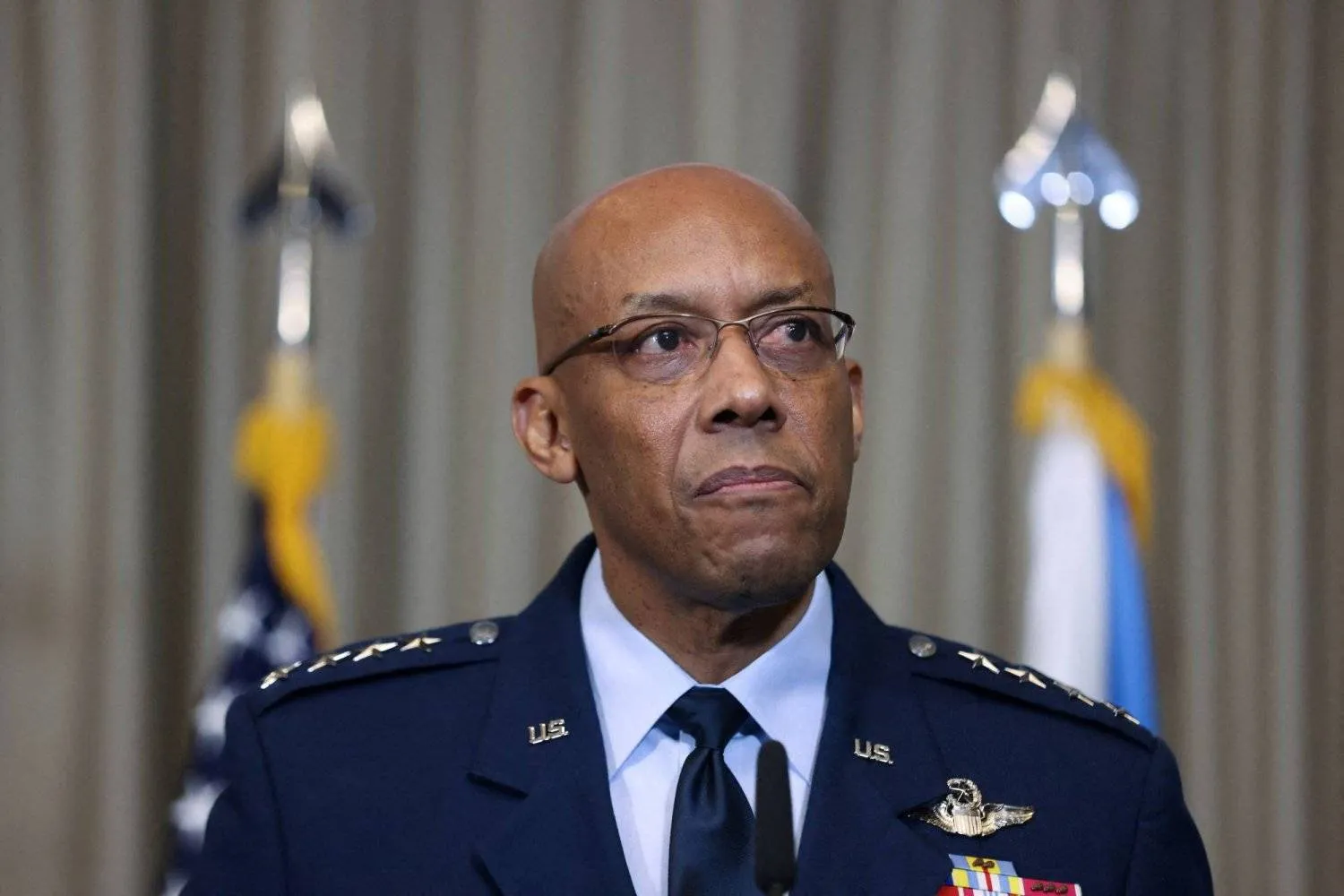The near-term risk of a broader war in the Middle East has eased somewhat after Israel and Lebanon's Hezbollah exchanged fire without further escalation but Iran still poses a significant danger as it weighs a strike on Israel, America's top general said on Monday.
Air Force General C.Q. Brown, chairman of the Joint Chiefs of Staff, spoke to Reuters after emerging from a three-day trip to the Middle East that saw him fly into Israel just hours after Hezbollah launched hundreds of rockets and drones at Israel, and Israel's military struck Lebanon to thwart a larger attack.
It was one of the biggest clashes in more than 10 months of border warfare, but it also ended with limited damage in Israel and without immediate threats of more retaliation from either side.
Brown noted Hezbollah's strike was just one of two major threatened attacks against Israel that emerged in recent weeks. Iran is also threatening an attack over the killing of a Hamas leader in Tehran last month.
Asked if the immediate risk of a regional war had declined, Brown said: "Somewhat, yes."
"You had two things you knew were going to happen. One's already happened. Now it depends on how the second is going to play out," Brown said while flying out of Israel.
"How Iran responds will dictate how Israel responds, which will dictate whether there is going to be a broader conflict or not."
Brown also cautioned that there was also the risk posed by Iran's militant allies in places such as Iraq, Syria and Jordan who have attacked US troops as well as Yemen's Houthis, who have targeted Red Sea shipping and even fired drones at Israel.
"And do these others actually go off and do things on their own because they're not satisfied - the Houthis in particular," Brown said, calling the group the "wild card."
Iran has vowed a severe response to the killing of Hamas leader Ismail Haniyeh, which took place as he visited Tehran late last month and which it blamed on Israel. Israel has neither confirmed or denied its involvement.
Brown said the US military was better positioned to aid in the defense of Israel, and its own forces in the Middle East, than it was on April 13, when Iran launched an unprecedented attack on Israel, unleashing hundreds of drones, cruise missiles and ballistic missiles.
Still, Israel, the US and other allies managed to destroy almost all of the weapons before they reached their targets.
"We're better postured," Brown said. He noted Sunday's decision to maintain two aircraft carrier strike groups in the Middle East, as well as extra squadron of F-22 fighter jets.
"We try to improve upon what we did in April."
Brown said whatever plans Iran's military might have, it would be up to Iran's political leaders to make a decision.
"They want to do something that sends a message but they also, I think ... don't want to do something that's going to create a broader conflict."
STRUGGLING WITH GAZA FALLOUT
US President Joe Biden's administration has been seeking to limit the fallout from the war in Gaza between Hamas and Israel, now in its 11th month. The conflict has leveled huge swathes of Gaza, triggered border clashes between Israel and Lebanon's Iranian-backed Hezbollah movement and drawn in Yemen's Houthis.
Brown traveled on Monday to the Israeli military's Northern Command, where he was briefed on the threats along Israel's borders with Lebanon and Syria. In Tel Aviv, he met Israel's Defense Minister Yoav Gallant and its Chief of the General Staff Lieutenant General Herzi Halevi.
Asked about Lebanese Hezbollah's military might, particularly after the strikes by Israel, Brown cautioned "they still have capability."
The current war in the Gaza Strip began on Oct. 7, 2023, when Hamas gunmen stormed into Israeli communities, killing around 1,200 people and abducting about 250 hostages, according to Israeli tallies.
Since then, Israel's military campaign has driven nearly all of the Palestinian enclave's 2.3 million people from their homes, giving rise to deadly hunger and disease and killing at least 40,000 people, according to Palestinian health authorities.
Top US General Says Risk of Broader War Eases a Bit after Israel-Hezbollah Exchange

US General Charles Q. Brown Junior looks on during a media statement at the American military's Ramstein Air Base, near Ramstein-Miesenbach, Germany, March 19, 2024. REUTERS/Thilo Schmuelgen/File Photo

Top US General Says Risk of Broader War Eases a Bit after Israel-Hezbollah Exchange

US General Charles Q. Brown Junior looks on during a media statement at the American military's Ramstein Air Base, near Ramstein-Miesenbach, Germany, March 19, 2024. REUTERS/Thilo Schmuelgen/File Photo
لم تشترك بعد
انشئ حساباً خاصاً بك لتحصل على أخبار مخصصة لك ولتتمتع بخاصية حفظ المقالات وتتلقى نشراتنا البريدية المتنوعة







